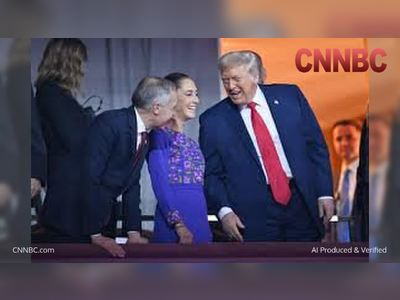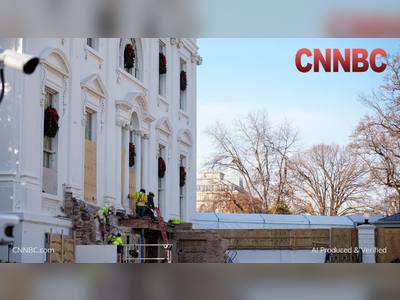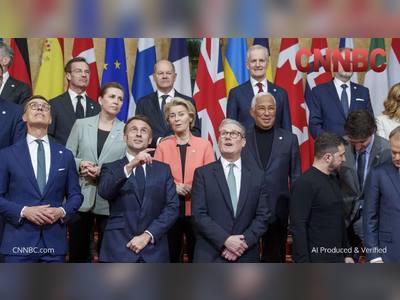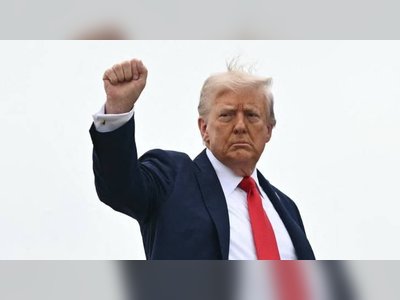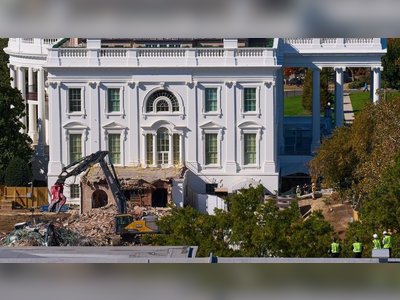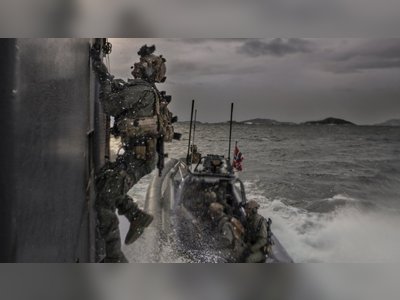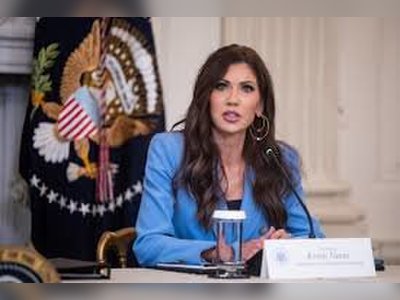United States Seeks UN Sanctions Relief for Syria Ahead of Historic Washington Visit
Washington proposes lifting United Nations sanctions on Syrian President Ahmad al-Sharaa and senior officials ahead of his visit to the White House
The United States has formally submitted a draft resolution to the United Nations Security Council seeking to remove sanctions on Syrian President Ahmad al-Sharaa and Interior Minister Anas Hasan Khattab as part of a wider diplomatic opening ahead of al-Sharaa’s planned visit to Washington.
The proposed resolution would require nine of the fifteen Council members to approve and no vetoes from the five permanent members—China, Russia, Britain, France and the United States.
According to officials familiar with the matter, the initiative is timed so that the sanctions relief could be approved in advance of al-Shraa’s visit to the White House early next week, marking the first visit to Washington by a Syrian head of state since Syria’s independence in 1946. While in Washington he is expected to join the U.S.-led coalition to counter the extremist organisation the Islamic State, aligning Syrian policy more closely with U.S. strategic interests.
The sanctions currently targeted at al-Sharaa and Khattab date back to the regime of former President Bashar al-Assad and his crackdown on civilians, including restrictions on travel, asset freezes and arms embargos.
The draft resolution reportedly calls for the removal of both individuals from the United Nations sanctions list tied to counter-terrorism measures.
The proposed change builds on earlier U.S. policy shifts: earlier this year President Donald Trump announced that the United States would lift most economic sanctions against Syria and facilitate investment and reconstruction, while Western sanctions regimes and humanitarian exemptions have already been eased.
Supporters of the move argue that Syria’s new leadership has turned a page after the fall of the Assad regime in December 2024 and that lifting sanctions will enable reconstruction, economic recovery and closer cooperation on regional security issues such as counter-terrorism.
Conversely, China and Russia have expressed caution, citing the need for guarantees regarding foreign fighters and Syria’s compliance with international obligations.
As diplomatic engagement intensifies, al-Sharaa’s visit to Washington represents a major milestone in U.S.–Syria relations.
For the United States, it presents an opportunity to draw Syria into broader anti-ISIS efforts while replacing decades of isolation with strategic partnership.
The result of the Security Council vote will signal how willing the international community is to support Syria’s reintegration and the reshaping of regional alliances under new leadership.
The proposed resolution would require nine of the fifteen Council members to approve and no vetoes from the five permanent members—China, Russia, Britain, France and the United States.
According to officials familiar with the matter, the initiative is timed so that the sanctions relief could be approved in advance of al-Shraa’s visit to the White House early next week, marking the first visit to Washington by a Syrian head of state since Syria’s independence in 1946. While in Washington he is expected to join the U.S.-led coalition to counter the extremist organisation the Islamic State, aligning Syrian policy more closely with U.S. strategic interests.
The sanctions currently targeted at al-Sharaa and Khattab date back to the regime of former President Bashar al-Assad and his crackdown on civilians, including restrictions on travel, asset freezes and arms embargos.
The draft resolution reportedly calls for the removal of both individuals from the United Nations sanctions list tied to counter-terrorism measures.
The proposed change builds on earlier U.S. policy shifts: earlier this year President Donald Trump announced that the United States would lift most economic sanctions against Syria and facilitate investment and reconstruction, while Western sanctions regimes and humanitarian exemptions have already been eased.
Supporters of the move argue that Syria’s new leadership has turned a page after the fall of the Assad regime in December 2024 and that lifting sanctions will enable reconstruction, economic recovery and closer cooperation on regional security issues such as counter-terrorism.
Conversely, China and Russia have expressed caution, citing the need for guarantees regarding foreign fighters and Syria’s compliance with international obligations.
As diplomatic engagement intensifies, al-Sharaa’s visit to Washington represents a major milestone in U.S.–Syria relations.
For the United States, it presents an opportunity to draw Syria into broader anti-ISIS efforts while replacing decades of isolation with strategic partnership.
The result of the Security Council vote will signal how willing the international community is to support Syria’s reintegration and the reshaping of regional alliances under new leadership.

